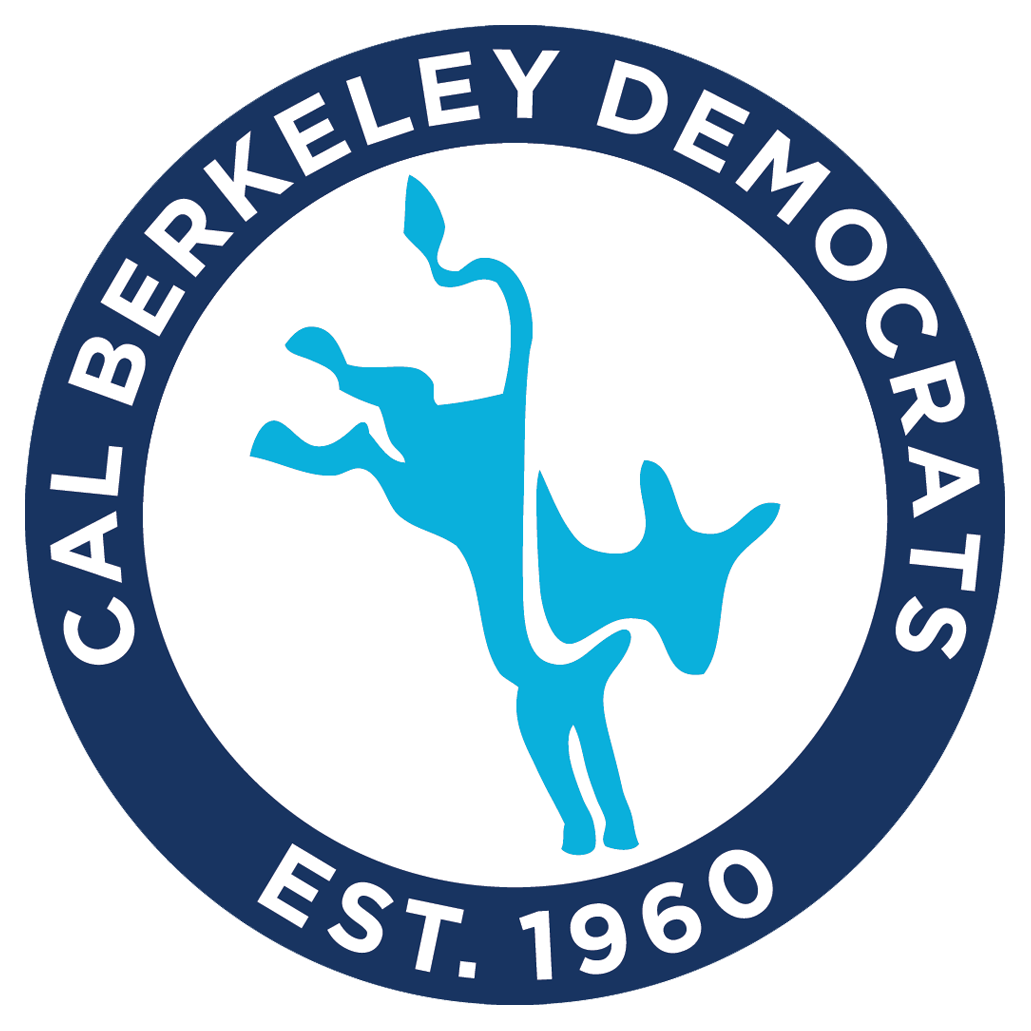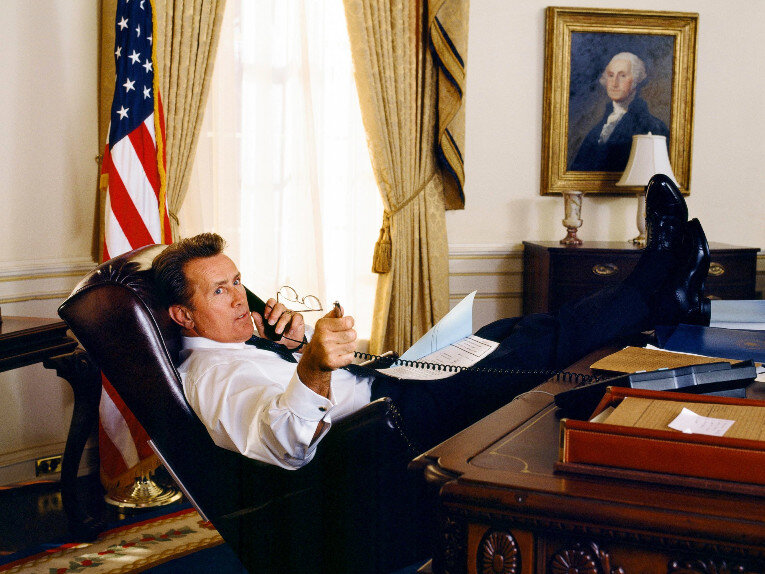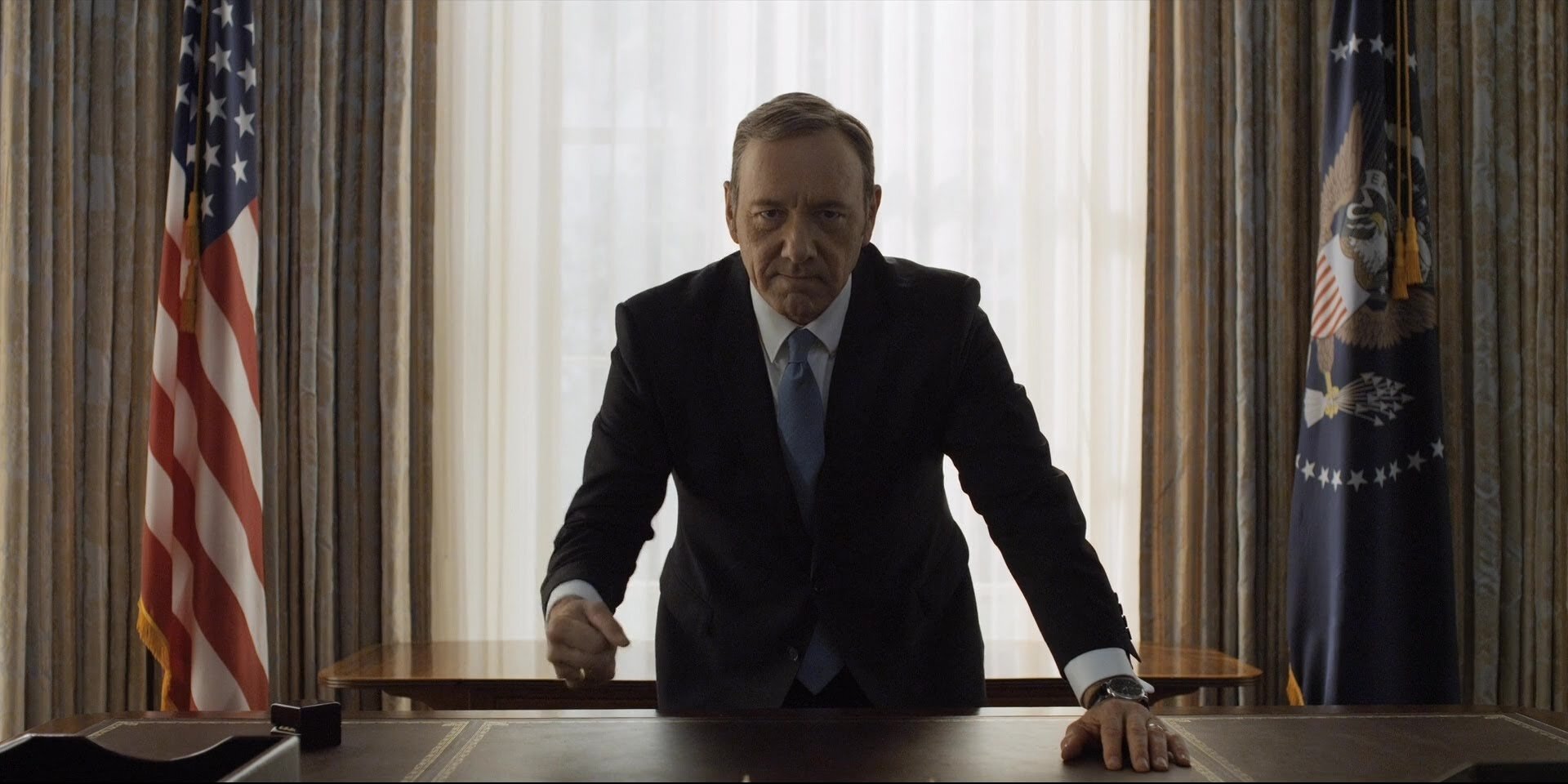A Tale of Two Shows: What The West Wing and House of Cards Tell Us About the Modern Political Climate
Aryan Deorah, Staff Writer
President Jed Bartlett giving orders from the Oval Office in The West Wing. Warner Bros. Television Distribution
Oftentimes, what makes a TV show exceptional is its ability to draw similarities between the fictional characters, plot, and atmosphere to the viewer’s personal reality. These qualities are what made both Aaron Sorkin’s The West Wing and Beau Willimon’s House of Cards award-winning shows with massive fan bases and references ingrained into pop-culture.
The two shows address many of the same hot subjects in American politics: White supremacy, terrorism, gridlock, greed, abortion, war, and more. However, they address these subjects in vastly different ways. The West Wing spun things in a positive light: when one of these issues appeared, the main characters followed the principle of good governance and acted in the best interest of the American people. House of Cards took an opposite view: it depicted people acting solely in their best interests and doing whatever it takes to win, scraping the bottom of the barrel in regards to morals and corruption.
For many, the separation is distinct between what people binge on Netflix and the nightly news; however, these shows are a reflection of the world they were made in and continue to shape attitudes towards the American political system. They influence our desires about the world we want to live in as well as our fears about the ones we live in now. Jed Bartlett and Frank Underwood may not be real, but the personas they evoke certainly are.
Right off the bat, The West Wing starts on an uplifting note. The opening theme manages to convey the importance of the decision making that takes place in the White House while making viewers patriotic. Much of the show focuses on the cheerful relationships between the White House staff as they deal with the daily buzz of American politics. All the characters crack light humor and enjoy their jobs, viewing the embetterment of the American people as their sacred duty. When they have disagreements, they tend to work them out in a civil manner through maintaining an open dialogue.
The West Wing ran from 1999 to 2006 and directly commented on the major events and issues of the era, from increasing partisanship to terror threats in a post Cold War America. In the show, despite setbacks and challenges, logical reasoning and progressive values reign supreme. One of the best examples of the show working to diffuse social tensions and unite Americans was the first episode of season three--the first one to air after 9/11. In the episode, during a lockdown in the White House, Deputy Chief of Staff Josh Lyman instructed a group of school children on religious extremism, emphasizing the point that Al-Queda is not representative of Islam as a whole. The show directly comments on how AQ is to Islam what the KKK is to Christianity and acknowledges that white nationalism is a far greater threat to Americans than Islamic terrorist groups.
The show was a product of a different era in American politics, one in which polarization was not great enough to prevent social and political progress. Politicians could work together across the aisle and reach compromises for the betterment of the American people. The show featured multiple examples of bipartisanship, from a Democrat choosing a Republican as Secretary of State, to a Republican Speaker of the House service as acting President when the President’s daughter is kidnapped, to both parties working together to save Social Security from its eventual failure. In each of these scenarios, politicians put their country over their party, and when they did, they were able to effectively deal with challenging situations.
As we live in a time where partisanship grows worse and politicians seem to care only about one thing, themselves, many liberals look to the West Wing as a source of comfort. When people are fed up with their reality, it is often nice to take a step back and pretend that Jed Bartlett is out there, fighting for what is best for us. His collective presence in our minds encourages us to believe that we can have a better future and a better political system if we work for it--and reminds us that it doesn’t have to be divisive.
House of Cards set a far darker, more menacing tone. The opening scene of House of Cards featured the main character, House Majority Whip Frank Underwood, suffocating a dog who was just run over. In his first monologue, he broke the fourth wall, something he did often throughout the series, talking about the necessity of decisiveness. This scene existed as the metaphor for a chaotic Washington, in which you need to be brutal and willing to do the unthinkable to survive, precisely how Frank Underwood behaved on his rise to power.
There was a big fish mentality prevailing in the politics of House of Cards. It was either kill or be killed, and as you make your way up the ranks, the stakes of any decision only grow. If you don’t fall in line behind those above you, your career is over. Everyone has done something terrible, something that would end their career if anyone found out, and whoever controls this knowledge controls the capitol. What was striking is how little politicians focus on the issues, instead focusing on maintaining or growing their power while destroying their rivals and enemies.
Frank Underwood knocks his knuckles against his desk as a form of preparation and luck in the Season 2 finale of House of Cards. Netflix
Another striking thing was that politicians and journalists who trust others and care about doing the right thing often suffer, or even die, because of it, commenting on the lack of trust in politics. Donald Blythe, arguably the one character who cared about doing what is best, is widely regarded as a fool and an idiot, and his career is ended by the Underwoods, ending with neither fame nor fortune. Many essential characters from journalists such as Zoe Barnes and Lucas Goodwin, to Congressman Peter Russo were killed due to their search for and exposition of the truth about the Underwoods. Though it all came crashing down like a house of cards for Underwood once his role in the plot that propelled him to the presidency was revealed, the damage that his individual quest for power could do to so many and to the country as a whole is astounding. The whole show was a commentary on how dangerous a political system can be when faced with the absence of morals and trust.
The creator of House of Cards, Beau Willimon, stated that the show is about power, and Underwood’s quest for power and the ways he used his power are what attracted so many viewers. Everyone has a core desire for power, and House of Cards taught America what would happen if the desire for power is left unchecked. House of Cards has rightfully instilled a fear in the minds of the American people about power hungry politicians like Underwood and has indirectly encouraged viewers to watch out for them. After watching the show, many tend to scrutinize politicians more and be more critical of the political system, which is necessary in such a time of chaos and corruption. Though the show started production well before the Trump era, its contents and its lessons map a little too well onto today’s politics.
There are several concerning parallels that can be drawn between Frank Underwood and Donald Trump. Underwood called scandals against him conspiracy theories, while Trump has his signature “fake news,” showing both often discredit those who negatively report on them. Underwood circumvented congress by declaring a national emergency to employ his unpopular AmericaWorks policy, while Trump did the same thing in order to build the border wall, displaying how both seem willing to push the limits of the presidential power to get their way. Underwood was shot by the boyfriend of someone he murdered, while Trump has been hospitalized thanks to a pandemic he consistently downplayed and let spread, meaning both have been sent to the hospital over demons of their own creation.
Most notably, Underwood rigged a presidential election through spreading terror at voting sites and discrediting its results, and it seems Trump is willing to do the same. Through a number of tactics, such as hacking election results, coordinating terrorist attacks on poll sites in swing states, and sewing fear and distrust of the results in the minds of his supporters and politicians in his party, Underwood was able to convince state secretary of states not to certify election results, leading to no one reaching a majority of electoral votes and moving the fate of the election to Congress. Through his so-called “poll watchers” and his order to white supremicist groups to “stand back, and stand by,” Trump may be planning to intimidate voters and cause chaos in liberal polling places in swing states. His overt intention to discredit mail in voting and even potentially seize “fraudulent” ballots may lead to an eerily familiar situation. If state secretaries of states refuse to certify election results, we may be in an unprecedented scenario, something that would make the election of 2000 look like light tumble.
All in all, these similarities between Trump and Underwood are a testament to the corruption in American politics today. However, there is hope, because politicians similar to Jed Bartlett--steadfast, empathetic, and productive--do exist in the political field, even when politics seem grim. Shows like West Wing and House of Cards continue to shape our perspective on politics, despite for better or worse. Even something as simple as a TV show can have a large influence on important issues today, and these shows challenge our preconceived notions and opinions in ways that are productive instead of mean-spirited.


